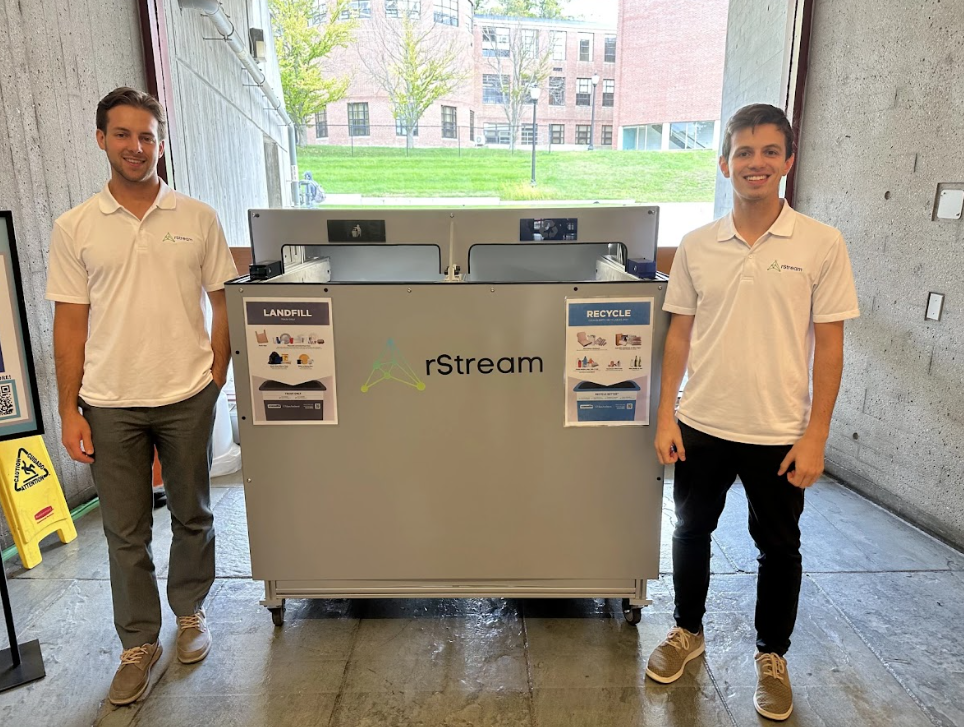Two recent UMass Amherst engineering graduates want to take decisions about what to recycle out of the hands of humans and turn them over to a machine. The first phase of the project is already operating on the Amherst, Mass., campus.
Off to one side of the UMass Campus Center sat a large gray cabinet, a bit bigger than a kitchen stove. On one side, a sign said “landfill.” The other side said “recycling.” Students put their trash on a conveyor belt on the top of the machine, which move it underneath a camera.
“It’s essentially a fancy photo booth for trash,” said Ian Goodine, one of the designers of the AuditPRO system. “We’re capturing a burst of images, networking them back to a cloud location, and able to run inferences to make decisions about whether we’re looking at something which maybe is metal or paper-based, or maybe it’s an organic material.”
Through all the pictures of trash, Goodine hopes the AI system will learn what’s what and get more accurate. The longer-term goal is to build a system that also sorts the garbage. At a facility in Somerville, Goodine and his team are working on that.
“The sorting prototype is coming alive as we speak,” he said. “We have mechanical engineers putting things together and shooting things off of conveyor belts. Probably not very controlled right now, but it’ll get there.”

Ethan Walko, left, and Ian Goodine, right, with the machine they designed to photograph trash at UMass Amherst in Amherst, Mass., on Oct. 10, 2023. (Photo by Alden Bourne, NEPM)
Goodine said the reality is that humans just aren’t that good at deciding what’s truly recyclable and what isn’t, especially at a place like UMass.
“There are tens of thousands of people who pass by every day, who come from different municipalities, different countries and are familiar with different rule sets. And those rule sets are changing actively. This is a path that eliminates that variable,” he said. “The goal here is to take people out of the loop completely.”
Goodine co-founded a company called rStream to develop the system with fellow UMass grad Ethan Walko.
“Our dream is to allow places to actually have only a single bin, and then in the back of house, our system exists to make the decision of whether something is recyclable or not,” Walko said. “The process of throwing away trash is streamlined, and we’re ensuring that the proper things are being recycled or not.”
Goodine said taking humans out of the equation could have a significant impact.
“We think that we can capture 80% or 90% of these sustainable materials as opposed to the current benchmarks at these places,” he said. “High-traffic venues — in particular universities — maybe (reach) 30%, 35%, 40% if they’re doing really well.
Funded by state and federal grants, Goodine and Walko hope to have a sorting system pilot up and running in 18 months.
Assuming all goes as planned, they envision selling the system to high-traffic locations in New England, like universities, stadiums, museums and transit hubs.
— ALDEN BOURNE/NEPM